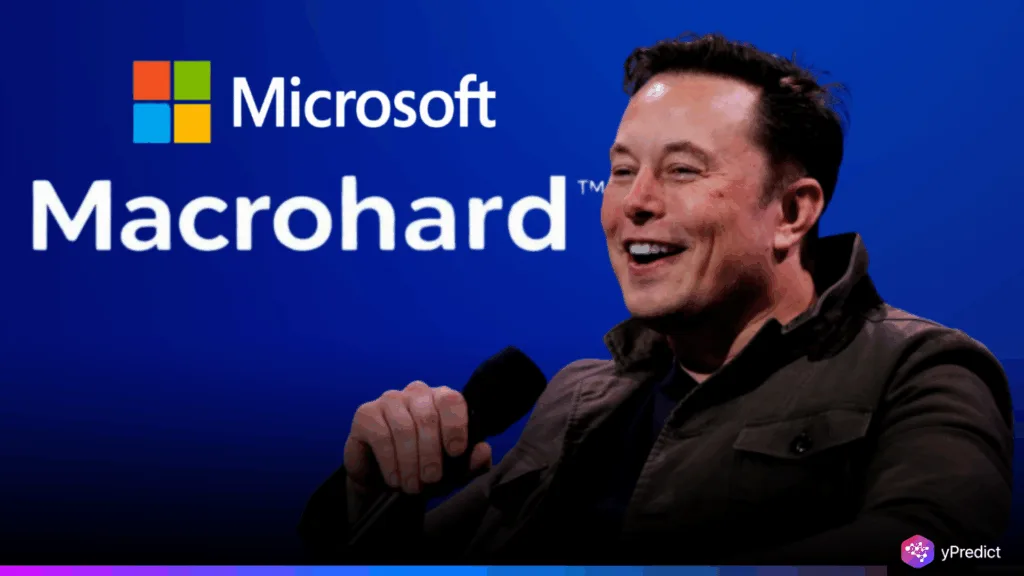
Elon Musk has caused another shock in the technology sphere and created Macrohard, an artificial intelligence-only software company that will compete directly with Microsoft. Although the name has the trademark humor, the ambitions behind the project are serious and potentially game-changing. Macrohard will solely depend on artificial intelligence to operate, where swarms of digital agents can code, analyze, and develop software within the simulation environments. Musk views Macrohard not only as a competitor to Microsoft Office products but also as a step toward AI-native corporations that can scale, be as efficient, and adapt to changes in a way that no company run by people can match.
A Bold AI Experiment in Software Development
The idea of Macrohard breaks the traditional beliefs of the software industry’s operation. Musk’s AI-based company, in contrast, will be trying to substitute this labor with smart agents able to cooperate within virtual machines. Rather than engineers and testers writing code and debugging it, Macrohard agents will now automate this process until they achieve optimal standards. This approach represents a paradigm shift in the application of AI, treating it not as a tool but as an entire structure in terms of software development driven exclusively by artificial intelligence.
Musk and his xAI venture, supported by an ever-expanding computational infrastructure, will execute the ambitions of Macrohard behind the scenes, using the Colossus local supercomputer in Memphis. This facility, which relies on millions of devoted GPUs, forms the core of Musk’s plan to enable Macrohard to compete with, or even achieve preeminence among, global software houses due to their scale and intellectual capacities. Musk points out that, since Microsoft does not actually build much hardware, it can completely reinvent its operations within such a structure of autonomous AI.
Implications for Microsoft and the Global Workforce
The presence of Macrohard is an eventful one that not only has a huge implication on the software industry but also implicates the millions employed in the industry. The fact that Musk has shown that, to some degree, software development can be done by using artificial intelligence severely compromises the use of human engineers. Multinational firms have hierarchies of groups covering development, quality assurance, and design and implementation. Macrohard can erase such overheads through the simulation of the corporate processes in AI environments. This has the potential to cut costs by a significant margin and has the advantage of speeding up time to delivery, which would lure corporate entities to rethink their reliance on established approaches and labor force.
Macrohard does more than give Microsoft business rivalry; in certain respects, it is an act of God to Microsoft’s dominance in the productivity pit. The likes of Microsoft Word, MS Excel, and PowerPoint may have AI-native alternatives that have been developed with minimal human input. Automation of production and improvement of the software allowed Macrohard to adapt to market requirements at a speed that was competitive with the iterative updates of the tech giants in the fast-paced market. In addition to business implications, there are significant societal implications.
Conclusion
Elon Musk’s announcement of Macrohard places him at the forefront of a new disruptive frontier in which he redefines the creation of software agents as autonomous AI agents. By mixing comedy with ambition, Musk has provided both unprecedented competition and much-needed momentum to the debate about the future of white-collar employment. Although the question of whether an AI-only company is possible is still debatable, the motif of Macrohard is to show that Musk is keen to disrupt other giants of the industry and change the corporate world. Will Macrohard unseat Microsoft and stimulate a new way of creating software that transcends the work of human beings and plunges into a new phase of technology development?





